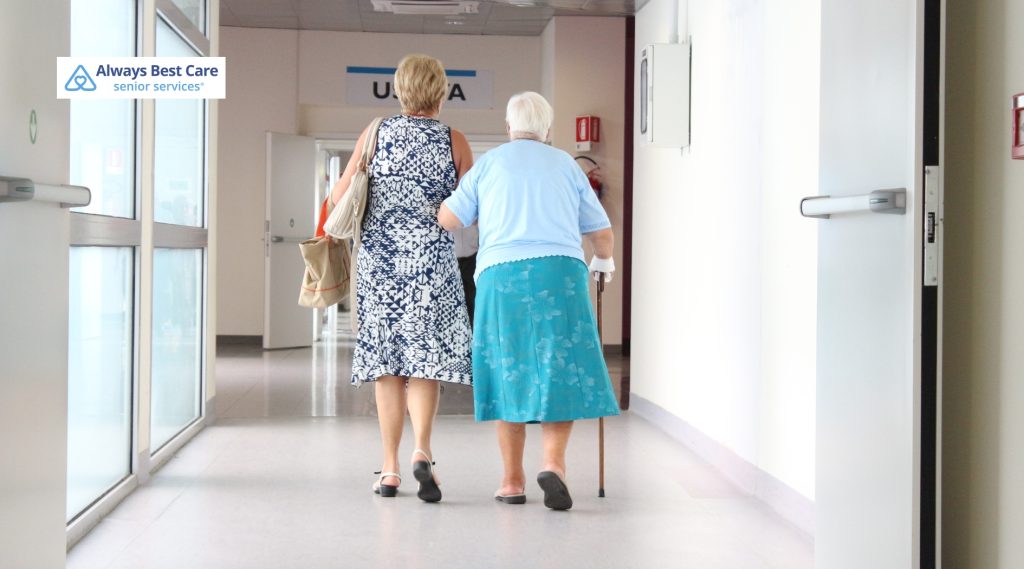Signs It Might Be Time to Consider Hospice Care in Baton Rouge, LA

Making care decisions for a loved one facing a serious illness can feel like walking a tightrope. Emotions run high, and the pressure to make the “right” call weighs heavily on us all. The thought of hospice care often comes with a mix of hesitation and misconception—but it’s really about enhancing comfort, dignity, and the quality of life when every moment counts.
What you will learn:
- The signs that indicate it might be time to consider hospice care, including both physical and emotional clues.
- How hospice care focuses on improving comfort, managing pain, and providing emotional and spiritual support.
- Tips for starting the difficult conversation about hospice care with your loved one and their medical team.
- The benefits of choosing hospice care, including expert support, respite care for caregivers, and guidance for end-of-life planning.

Table of Contents
What Is Hospice Care, Anyway?
Hospice care steps in when a person has a life-limiting illness and aggressive treatments are no longer the priority. Instead of chasing cures, the focus shifts to:
- Managing pain and symptoms
- Providing emotional and spiritual support for both patients and their families
- Ensuring comfort, peace, and dignity, wherever “home” may be
And here’s a relief: hospice care is typically covered by Medicare, Medicaid, and most private insurances. So families can focus on what matters, not just the bills.

Spotting the Signs: When to Consider Hospice Care in Baton Rouge, LA
It’s no picnic trying to decide when to talk hospice. Sometimes, the signs creep in quietly; other times, they hit like a ton of bricks. Watch for these clues that it might be time to have “the conversation” with Always Best Care of Baton Rouge:
Physical Clues That Can’t Be Ignored
- Frequent trips to the hospital or ER that seem to solve little
- Noticeable, unexplained weight loss—even with all efforts to help
- Struggling for breath, even when resting, or needing oxygen support
- Pain that regular meds can’t seem to tame
- Recurring infections or slow bounce-back after illnesses
- Needing help to get out of bed or move between rooms
- Trouble managing daily activities like bathing, dressing, or eating
Emotional and Behavioral Changes That Speak Volumes
Sometimes, it’s not just about the body. The mind and spirit can show signs, too:
- Withdrawing from friends and family, sleeping more, or losing interest in once-loved hobbies
- Heightened anxiety, sadness, or fear about illness and the future
- Moments of confusion, forgetfulness, or disorientation
These shifts often reflect the heavy toll illness takes on a person’s overall well-being.
Medical Milestones That Might Prompt a Hospice Conversation
- The doctor has given a terminal diagnosis with a life expectancy of six months or less, if the illness runs its expected course
- Curative treatments have stopped working, or the side effects are just too much
- The focus turns from “How do we fight this?” to “How do we make each day the best it can be?”

How Hospice Care in Baton Rouge, LA Makes a Difference
Hospice care is not about “giving up”—far from it. Choosing hospice means opening the door to:
- Expert pain and symptom management from a seasoned team
- Emotional and spiritual support for everyone involved
- 24/7 help when questions or urgent needs pop up
- Respite care so family caregivers can take a well-earned breather
- Guidance for end-of-life planning, so tough decisions don’t have to be faced alone
In short, hospice ramps up the support, focusing on what matters most: comfort, respect, and peace.

Tips for Having the Hospice Talk
Nobody likes tough conversations, but sometimes they’re necessary. Here’s how we at Always Best Care of Baton Rouge suggest breaking the ice:
- Pick a quiet time—no background chaos, no distractions
- Listen as much as you talk; your loved one’s fears and wishes matter
- Use gentle, honest words that focus on comfort and dignity
- Bring in the doctor for backup and a medical perspective

Don’t Wait Too Long
Dragging your feet can mean missing out on valuable time spent in comfort. If you’ve noticed several of the signs above—declining health, emotional withdrawal, pain that’s hard to control—consider starting the conversation sooner rather than later. Hospice care can sometimes help folks live a little longer by reducing stress and focusing on well-being.
Always Best Care of Baton Rouge: Here for You
We know these choices aren’t easy. That’s why Always Best Care of Baton Rouge is ready to walk beside you, offering compassion, local expertise, and connections to trusted hospice providers. Our goal? Making sure your loved one gets the care and respect they deserve.
FAQs About Hospice Care in Baton Rouge, LA
Q: What’s the main goal of hospice care?
A: Hospice care is all about prioritizing comfort, dignity, and quality of life when a cure is no longer the focus.
Q: Does choosing hospice mean giving up hope?
A: Not at all. It means shifting hope toward comfort and making the most of every day.
Q: Where can hospice care be provided?
A: Hospice can come to your home, a hospice center, or a long-term care facility.
Q: How do I pay for hospice?
A: Most of the time, Medicare, Medicaid, or private insurance covers hospice care.
Q: Who provides hospice care?
A: A team of skilled professionals—doctors, nurses, social workers, counselors—who focus on the needs of both patients and families.

Ready to Talk About Hospice Care? Let’s Walk This Journey Together with Compassion and Support.
Deciding when to consider hospice care in Baton Rouge, LA, isn’t about letting go—it’s about holding on to what’s truly important: comfort, dignity, and meaningful moments. We at Always Best Care of Baton Rouge stand ready to guide, support, and walk with you every step of the way. When you’re ready to talk, we’re just a phone call away. Contact Always Best Care of Baton Rouge at (225) 771-8605 to learn more and schedule your free consultation.





